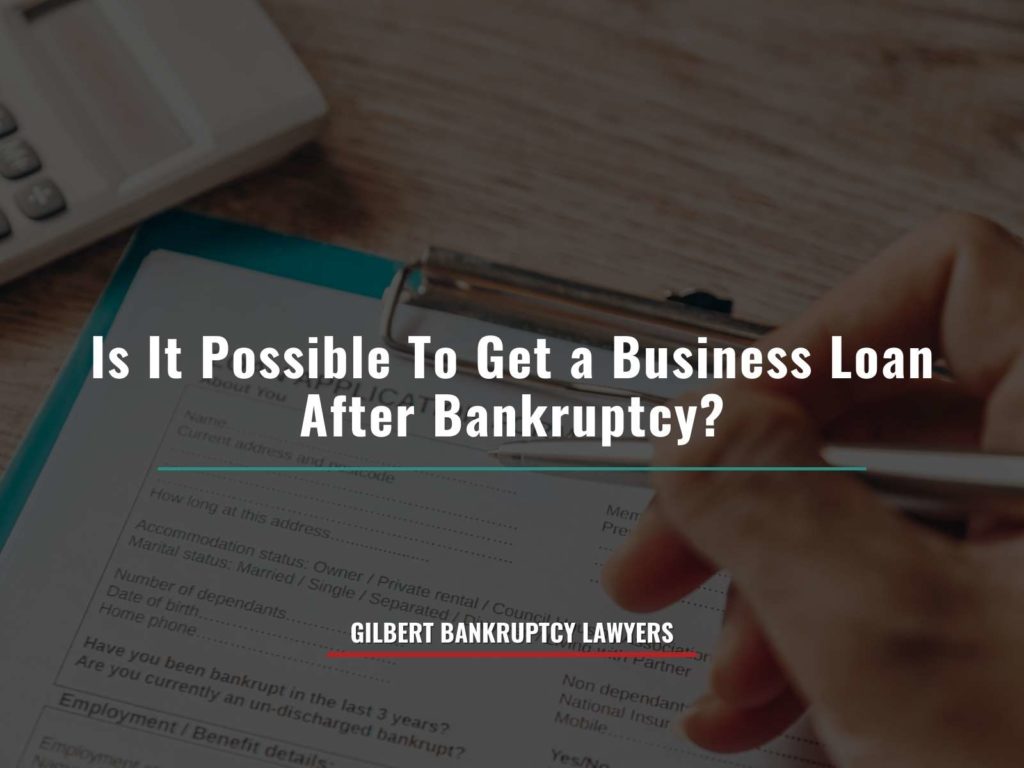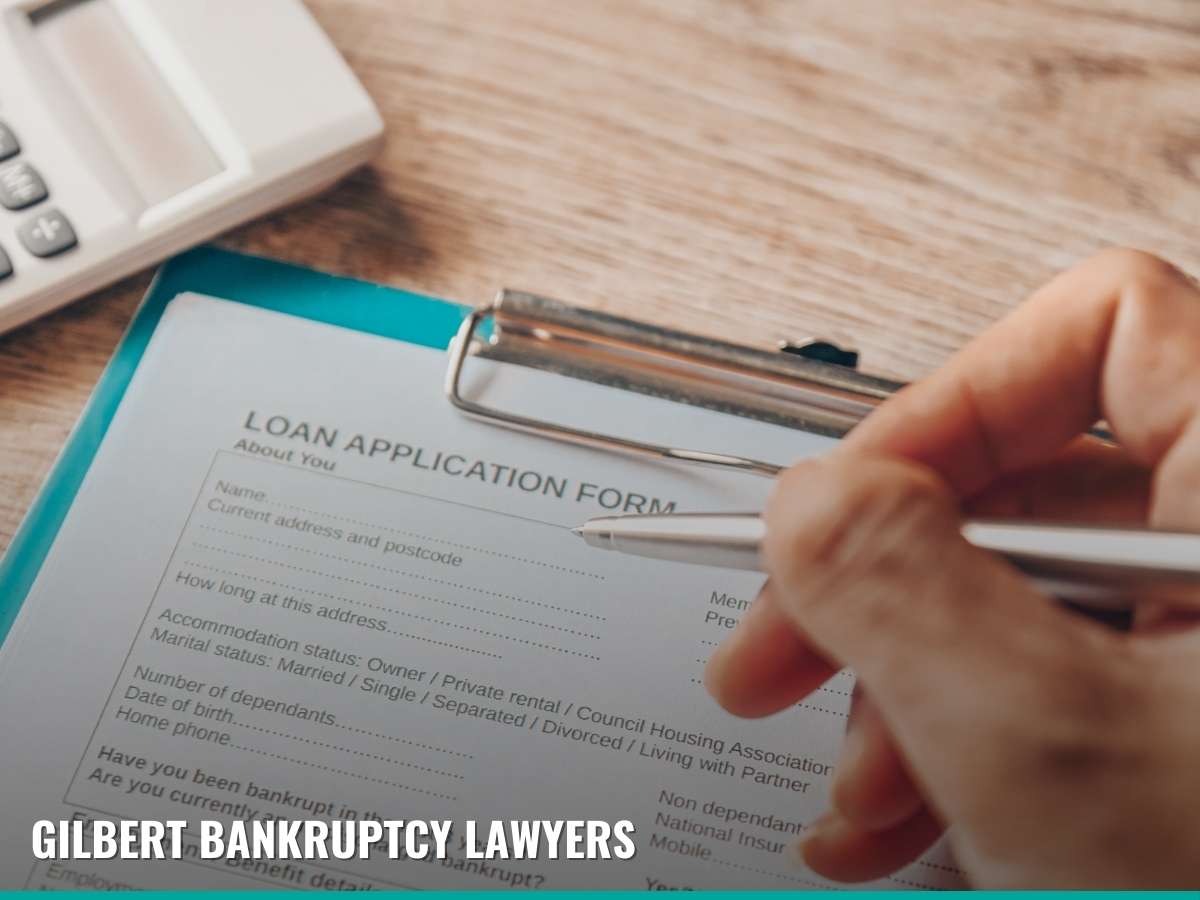Starting a New Enterprise After Filing For Bankruptcy
Entrepreneurs who have gone through a bankruptcy often wonder if they will be able to start a new business in the future. Starting a new enterprise without capital may be difficult to impossible, which means that being able to acquire a business loan is crucial. But will you qualify for a business loan after bankruptcy?
Business Loans After Bankruptcy
Although bankruptcy provides a way out of overwhelming debt, it’s important to remember that there are always repercussions. You’ll face a serious hit to your credit score and may have difficulty getting any kind of loan, especially on reasonable terms, for several years after filing. It is possible to start a new business after bankruptcy, but you’ll probably face some additional challenges and will need to take specific rebuilding steps in order to build up your credit and move forward.
As with every other aspect of bankruptcy, you’ll want to discuss your options with your Gilbert bankruptcy law office.
Types of Bankruptcy Filing In Arizona
The exact steps to take in order to rebuild your finances will depend on what type of bankruptcy you filed.
Chapter 7 bankruptcy will use all of your non-exempt assets to pay toward your debts. Your debts will be discharged in just a few months, after which you’ll have a bankruptcy on your credit history for up to 10 years. This is generally a better option for people who have low income and large amounts of unsecured debts such as medical bills or credit card debt.
Chapter 13 bankruptcy restructures your debt and establishes 3-5 years of monthly repayments toward your debts. At the end of the term, your remaining debts are forgiven, and the bankruptcy will remain on your credit history for 7 years. Chapter 13 is a better option for people who want to keep their assets or have a higher income but need some breathing room to catch up on debt.
When filing Gilbert Chapter 7 bankruptcy, some of your assets are exempt from liquidation while others will be used by the bankruptcy trustee to pay for your debts. Bankruptcy as a whole is meant to help individuals rebuild their lives, not end up homeless on the street with no means of moving forward. Assets including your primary home, your vehicle, cash, and retirement accounts are generally exempt, depending on their worth.
Exempted Assets In Arizona
Exemptions can be complicated, so it’s important to work with an experienced Gilbert bankruptcy attorney who can guide you through the process and help you choose the best type of bankruptcy filing for your situation.
Assets that you will likely be able to keep after filing Chapter 7 bankruptcy include:
- Your primary home, depending on its value and equity
- Personal property such as furniture, appliances, and clothing
- Your primary vehicle with certain value limits
- Some types of insurance proceeds
- Retirement accounts such as 401(k) and IRA
- Workers’ compensation benefits
- Welfare assistance benefits
If you’ve lived in Arizona for two full years before you file for bankruptcy, you will be eligible to receive all recognized exemptions. If you’ve lived in Arizona for less than two years, what exemptions you are eligible to receive is more complicated.
Some debts cannot be discharged in bankruptcy. These include:
- Child support and alimony
- Criminal fines and penalties
- Some tax obligations
- Student loans
- Fraudulent debts
How Do I Move Forward after Bankruptcy?
Although a bankruptcy will remain on your credit score for 7-10 years after filing, there are still a lot of steps you can take to improve your credit score, rebuild your finances, and put yourself in the best position to take out a business loan. The good news is that lenders tend to look at credit scores more than comments on your credit report, meaning that if you are actively working to rebuild your credit, the lender will take that into serious consideration.
Some of the most beneficial steps to take in order to rebuild your finances include:
- Stay up to date on your credit reports. Verify that discharged debts are being correctly reported and that all information is accurate.
- Obtain a secured credit card. For this type of card, you’ll put forward a certain amount of money, such as $500, and only be able to borrow against that amount. This leaves no risk to your lender and is an excellent way to rebuild your credit and develop good financial habits. A lender will appreciate your history of timely repayments when you apply for a business loan.
- Work with a bankruptcy lawyer to help you get back on your feet, especially if you will still be facing large amounts of debt that cannot be discharged in bankruptcy. Sometimes declaring bankruptcy non dischargeable debt is an option that will enable you to have the income to pay back your other debts.
With some effort toward rebuilding your life and finances after bankruptcy, you’ll be well on your way to successfully receiving a business loan for your new venture!
Consult with Gilbert’s Top Rated Bankruptcy Attorney Firm
Bankruptcy can be overwhelming, but working with the legal team at Gilbert Bankruptcy Lawyers can simplify the process. Our attorneys are committed to helping our clients understand their rights and options, and will work with you to develop a personalized debt relief solution with guidance every step of the way. Contact us today to schedule your free, confidential consultation!
Gilbert Bankruptcy Lawyers
Office: 480-448-9800
Email: info@myazlawyers.com
Website: https://gilbertbankruptcylawyers.com
Additional Information at:
Phoenix Bankruptcy Lawyer
Mesa Bankruptcy Lawyers
Phoenix DUI Lawyer
Chandler Bankruptcy Lawyer
Tempe Bankruptcy Lawyers
Vegas Zero Down Bankruptcy Attorney
Gilbert Bankruptcy Lawyers
Tucson Bankruptcy Lawyer
Arizona Zero Down DUI
Las Vegas Bankruptcy Lawyers
AZ Bankruptcy Lawyer

